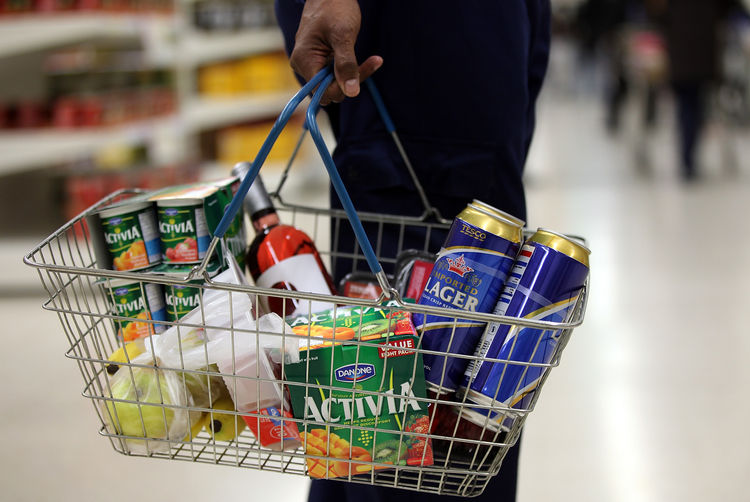- Pace of Inflation Increase to Reduce in September
Following yesterday’s release of the data for Consumer Price Index (CPI) by the National Bureau of Statistics, which put the figures at 17.9 per cent (year-on-year), representing 0.24 percentage points higher than 17.6 per cent in August 2016, the pace of increase in inflation has further reduced.
This has confirmed the projections of analysts, who forecast the further narrowing of the gap of increase in CPI, which measures inflation, in the review month.
Earlier, analysts, in their estimations, had projected a slower pace of increase in the CPI in September. The projections were contained in the analyses done by Dunn Loren Merrifield Asset Management and Research Company Ltd (DLM) and Financial Derivatives Company Ltd (FDC).
For Dunn Loren Merrifield, CPI would increase to 17.93 per cent (year-on-year) in September 2016, representing an increase by 32 basis points from 17.61 per cent in the previous months, while FDC put the headline inflation for the review month at 18 per cent, an increase of 40 basis points. In fact, FDC has regarded the 18 per cent inflation rate as the highest in 11 years.
At 17.61 per cent, inflation for August had risen by 48 basis points from 17.13 per cent in July. When compared with the expected pace of increase in September, it is projected that the gap of increase would reduce.
According to DLM, “We estimate an increase in headline inflation to 17.93 percent year-on-year in September 2016; up by 32bps from 17.61 percent recorded in the preceding month.”
This in our view, DLM analysts explained, will be primarily driven by a faster rise in the food index. “Our model shows a movement in the food sub-index captured by “farm produce and processed foods” to 212.2 points in September 2016 up from 181.8 points in the corresponding period of the previous year. In addition, we expect a movement in the core sub-index to 204.0points up from 173.7points in September 2015. Hence, this translates into a food and core inflation of approximately 16.73 percent and 17.47 percent respectively in September 2016.”
They recalled that the increase in inflation in August was “supported by the rise in prices recorded in all classes of the Classification of Individual Consumption According to Purpose (COICOP) which contribute to the index.”
“In particular, the divisions which recorded higher inflationary pressures during the month include: housing, water, electricity, gas and other fuel, education and transportation services.
However, on a month-on-month basis, the pace of price increases slowed marginally to 1.00 percent from 1.30 percent in July 2016,” they added.
The analysts also noted that food inflation up by 63bps even as core inflation increased for the seventh consecutive month. “The food index was higher by 16.43 percent up from 15.80 percent recorded in the previous month. This was despite the slower rise in prices recorded in the fruits, potatoes, yam and other tubers as well as oils and fats classes which weighed considerably on the overall sub-index.
“On a month-on-month basis, the food sub-index remained relatively flat at 1.20 percent during the month.
Similarly, the core inflation index rose by 17.21 percent from 16.93 percent in July 2016 with the highest increases seen in solid fuels, vehicles parts, books & stationeries, clothing and other articles of clothing. On a month-on-month basis, the core sub-index rose marginally to 0.90 percent from 1.20 per cent in the previous month.”
Nevertheless, FDC analysts, in giving their own position, noted that, “If the estimates of our model are accurate, it will be the highest level in 11 years,” but added that, “a change of 0.4 per cent indicates that the rate of increase is slowing.” As such, they submitted that, “If this trend continues, the direction of inflation is likely to reverse.”
On factors that are responsible for pressure on inflation, FDC said: “Diesel prices eased in September to an average of N190/ltr from August’s average of N193.53/ltr partly due to heavy rains and reduced attacks in the Niger Delta due to a ceasefire agreement. However, on the 24th of September the NDA defied the cease-fire agreement with an attack on the Bonny crude export line. PMS prices maintained an average of N143/ltr with some filling stations selling as low as N140/ltr.”

 Forex2 weeks ago
Forex2 weeks ago


 Naira2 weeks ago
Naira2 weeks ago
 Billionaire Watch1 week ago
Billionaire Watch1 week ago




 Naira2 weeks ago
Naira2 weeks ago




 Naira1 week ago
Naira1 week ago




 Naira4 weeks ago
Naira4 weeks ago
 Nigerian Exchange Limited4 weeks ago
Nigerian Exchange Limited4 weeks ago


 Naira3 days ago
Naira3 days ago






















